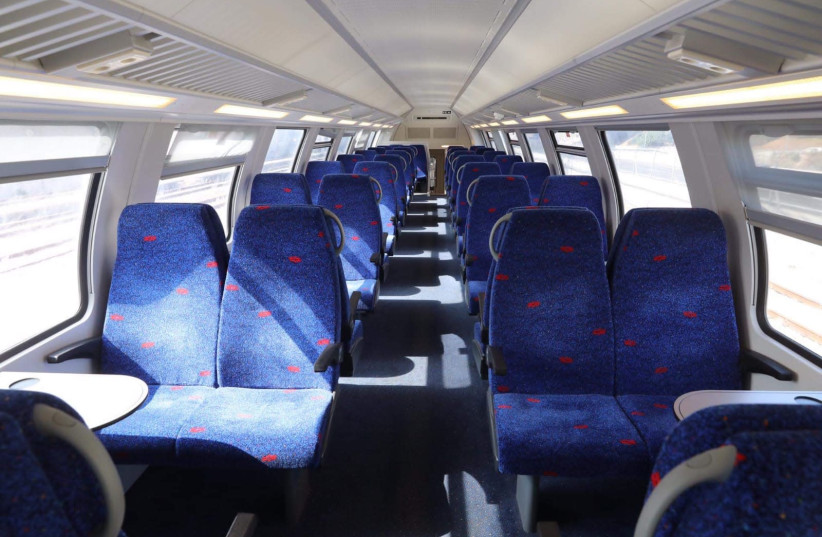The National Infrastructure Planning Council has moved forward with a plan to increase the rail infrastructure from Haifa to Tel Aviv, adding two additional rails and thereby doubling the current capacity for travel between the two cities. In addition, options for increased train infrastructure within Haifa are being discussed: among those options is a subway system that will enable quick travel between the stations in the city.
Estimated travel times from the expansion are 30 minutes from Haifa to Tel Aviv and vice versa, and 54 minutes from Nahariya to Tel Aviv (cutting about 50 minutes off the current time).
“Going from wasting two hours a day on a train to one hour a day is an upgrade,” said Aryeh Aziz, a frequent commuter between Haifa and Tel Aviv. The decision to improve the north-south capacity of the rail system stands to vastly improve the quality of life for commuters in the North and Center of Israel. “By reducing travel time to an hour a day, that leaves you with an hour more to rest, spend time with your family, or do hobbies. With the amount of people who travel daily between Haifa and Tel Aviv, you are looking at a serious quality of life improvement for workers and soldiers.”
That amount of people was between 40 and 50 thousand passengers a day, pre-pandemic; while that number has declined with the appearance of COVID, the demand is still palpable. “We’re operating today 8 trains per direction - this is not enough,” said an official from Israel Railways. “We have crowded trains.” In order to reduce that overcrowding, he presented a seemingly simple solution: “We need more trains; we cannot operate more trains without the infrastructure. [This expansion] will double the number of trains we can operate - instead of 8 trains per hour per direction, we’ll have 16.”
The plan to add railway lines from Haifa directly to Tel Aviv will surely alleviate overcrowding and allow for increased traffic between the two hubs, though there’s one particularly busy train station along the way that the expedited line will be bypassing completely: Binyamina. “If you live in Binyamina, you’ll go on the longer ride, because you live in a smaller community along the way,” said the official.

While it may seem like an inconvenience at first blush, two new rails being constructed that skip Binyamina along the way are actually a boon to travelers from the station: while they’ll have to put up with more time on board, that time may be significantly less crowded.
Binyamina serves as a halfway point between the two metropolitan hub cities; as such, until now the station has suffered severe crowding issues during morning and evening rush hour. “I personally never had an issue with the train being crowded pre-corona because I love sitting on the floor just as much as I love sitting in a chair,” said Demion, a Binyamina commuter.
For commuters who take the train from Binyamina every morning, the imagery of full seats and jam-packed aisles is all-too-familiar. In recent years, however, that has become less of an inconvenience and more of an outright health risk.
"After coronavirus started and the train was always just as full, if not more full sometimes, it became much worse and more worrisome," said Demion. "Especially since I have definitely experienced quite a few people who don't wear their masks properly (or at all) and that makes it much more concerning, especially with how crowded it is.”
While this expansion will certainly see reduced crowding in the years to come, Israel Railways is looking ahead to make sure they can stay ahead of the curve: future plans to enlarge the railroad network in Israel include doubling the number of lines from Tel Aviv to Beer Sheva and completing and reinforcing the east-bound railway from Hadera to Lod.
“The number of passengers is getting larger every year,” said the Israel Railways official. “Whereas in 2019 we had 70 million passengers a year, in 2025, we’re expected to have 105 million passengers per year. In 2040, we’re expected to have 305 million. In order to transport this number of people, we need all of these projects and many more."
